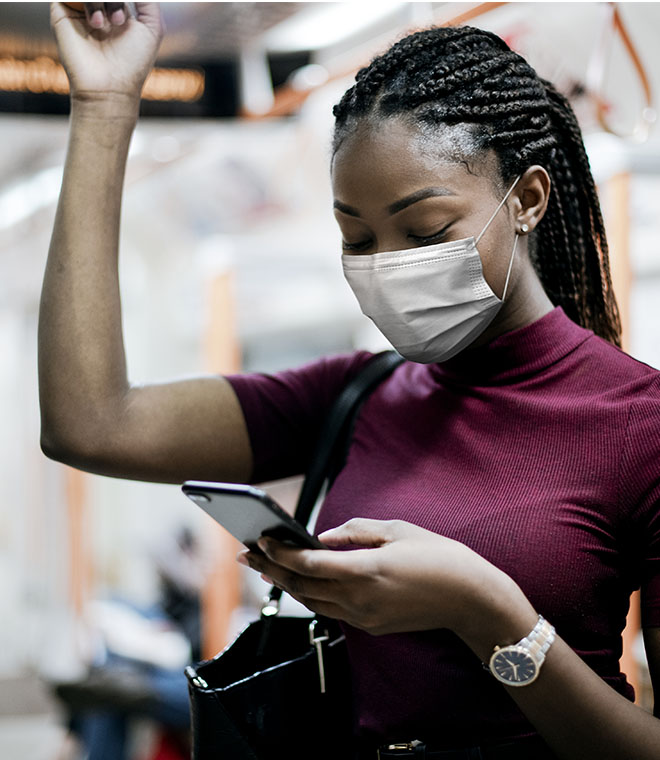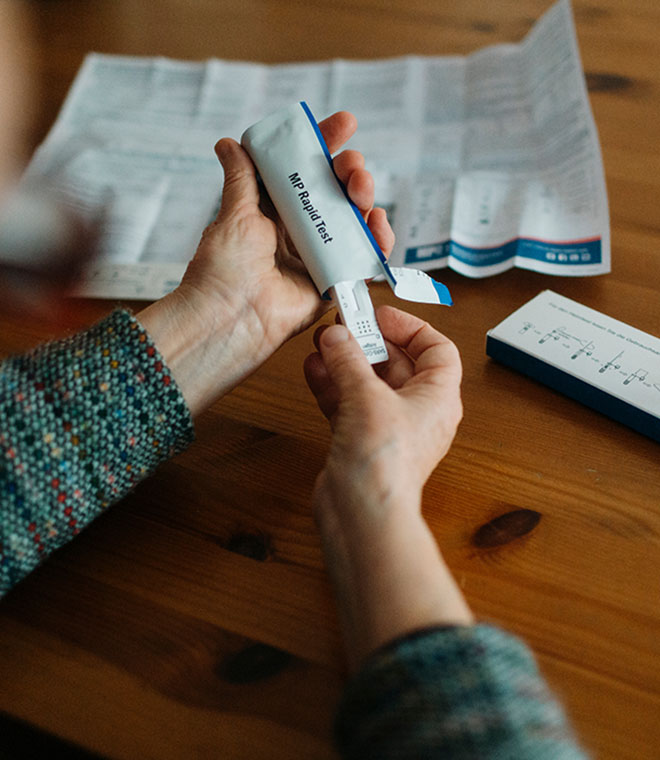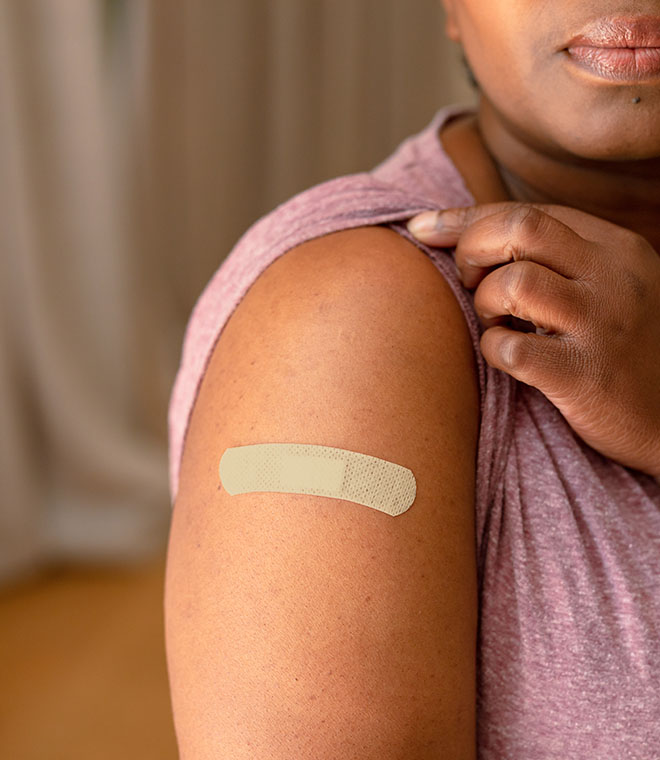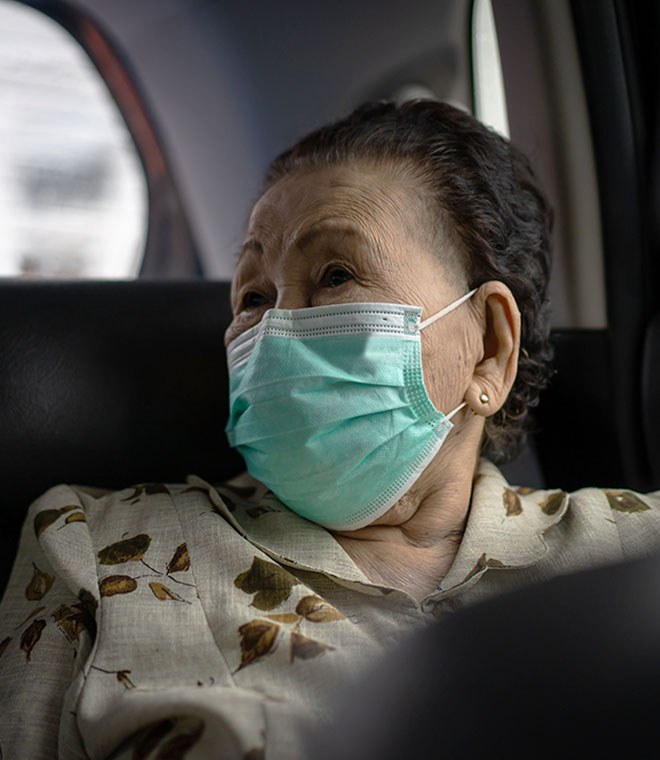Health
What are the different types of COVID-19 tests?
Laly Havern, PharmD, MS, BCACP, and Jen Matz, MPH Jul 24, 2022 • 6 min.
Testing has been a central part of our nation's response to the COVID-19 pandemic.
Where can I get tested for COVID-19?
For additional information on COVID-19 testing at Walgreens, please visit https://www.walgreens.com/findcare/covid19/testing.
There are a number of COVID-19 tests on the market. Because of the rapid development in testing, there has been some confusion around the different types of COVID-19 tests being offered. Here you'll learn the basics on available COVID-19 tests, including when to be tested.
Types of COVID-19 tests
There are two types of COVID-19 tests:
- Diagnostic tests check for an active infection with COVID-19
- Antibody tests may be able to tell if you've had a past infection with COVID-19
Diagnostic tests
A diagnostic test will determine if you have an active COVID-19 infection. There are two classes of diagnostic tests:
- Molecular tests (PCR, nucleic acid amplification tests, NAATs, and other molecular amplification tests) detect the genetic material of the virus. These tests are highly accurate and can detect COVID-19 even if you don’t have symptoms.
- Antigen tests detect specific proteins on the surface of the virus. Antigen tests provide results more quickly than molecular tests, but they have a higher chance of false negatives (missing an active COVID-19 infection). If you have a negative antigen test but still have symptoms of COVID-19, your healthcare provider may recommend you receive a molecular test to confirm the results.
Some providers, offices and clinics can do antigen, molecular or combination testing for flu, COVID-19 and other select respiratory viruses at the same time using point-of-care tests. Other times, specimens need to be sent to a laboratory for testing.
There are also antigen self-tests available that are easy to use and produce rapid results. They can be taken anywhere, including at home.
For each test, you or your healthcare provider will use a special swab to collect samples from your nose or throat. You may even be asked to spit into a special tube. You may receive results the same day you were tested; however, most results take a few days to a week, depending on the type of test, lab and resources available.
Antibody tests
An antibody test is a blood test that checks for antibodies or immunoglobulins, which are proteins that are specific to each illness. Antibodies play a role in targeting and destroying new infections and can often provide immunity or protection if you get the same illness again, although that immunity may diminish over time, so don’t think ,“I’ve already had it. I can’t get it again.” In this case, the test looks for antibodies to SARS-CoV-2, the virus that causes COVID-19.
If you receive a positive test result, it could mean that you have antibodies from a past infection with COVID-19 or possibly for being vaccinated against COVID-19. Antibody tests are not used to diagnose a current case of COVID-19. These antibodies may provide protection from getting the virus again. However, at this time, it is still uncertain how long this protection can last.
If you receive a negative antibody test result, this may mean you never had COVID-19, or it may mean you had COVID-19 awhile ago, but the antibodies in your body decreased to undetectable levels. It can also mean that you may have an active COVID-19 infection, because it takes antibodies about one to three weeks to develop after an infection. However, some people take even longer to develop antibodies and others do not develop antibodies at all after an infection.
|
Viral tests |
|
|
|
Molecular test |
Antigen test |
Antibody Test |
Also known as … |
Diagnostic test, nucleic acid amplification test, (NAAT), RT-PCR test, LAMP test |
Rapid diagnostic test, lateral flow test |
Serological or serology test |
What the test shows … |
Current COVID-19 infection |
Current COVID-19 infection |
May show previous infection or immunization against COVID-19 |
How the sample is taken … |
Nasal swab, throat swab or saliva (spit) |
Nasal swab, throat swab |
Fingerstick or blood draw |
Time to results … |
Same day to up to a few weeks (depending on location) |
Same day, often in less than an hour (depending on location) |
Same day or up to 3 days (depending on location) |
Another test is … |
Not usually required |
Sometimes necessary if the results are negative and the person has symptoms. The provider may order a molecular test. |
Not usually required
|
The test does not … |
Show past infection |
Definitively rule out COVID-19 |
Diagnose or disprove active COVID-19 at the time of the test |
Who should get tested for COVID-19?
According to the Centers for Disease Control and Prevention (CDC), the following people should be tested for COVID-19:
- People with symptoms of COVID-19
- People who have been in close contact with someone with confirmed COVID-19 (within 6 feet of an infected person for a total of 15 minutes or more)
- People who have been referred by their healthcare provider or local or state health department
If you get tested for COVID-19, be sure to isolate at home, alone, until you get your test results back, and follow the advice of your healthcare provider.
Clinically reviewed and updated by Nancy Kupka, PhD, RN, June 2022.
Sources:
- https://www.fda.gov/consumers/consumer-updates/coronavirus-disease-2019-testing-basics
- https://www.cdc.gov/coronavirus/2019-ncov/testing/diagnostic-testing.html
- https://www.cdc.gov/coronavirus/2019-ncov/symptoms-testing/testing.html
- https://www.cdc.gov/coronavirus/2019-ncov/testing/serology-overview.html



